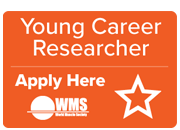CONFIRMED INVITED SPEAKERS
Metabolic disturbances in neuromuscular diseases

Pascal Laforêt, Raymond Poincaré University Hospital, France
A journey through the growing world of muscle glycogenosisPascal Laforêt, MD, PhD, is a professor of Neurology at the Versailles-Saint Quentin University, consultant specialized in neuromuscular disorders (myasthenia gravis, muscular dystrophies, and metabolic myopathies) in the Neurology department of Raymond-Poincaré hospital, and coordinator of Nord/Est/Ile de France neuromuscular center. He is a member of the U1179 INSERM-UVSQ laboratory, dedicated to biotherapies of neuromuscular system diseases. Major focus of his research activities are metabolic myopathies (pathophysiology and clinical trials), and he coordinates the French registries for mitochondrial disorders, glycogenosis type III, and Pompe disease. He is a member of the European NeuroMuscular Center (ENMC) research committee, French Myology Society (SFM), scientific committees of the French Association against Myopathy (AFM) and French Glycogenosis association (AFG).
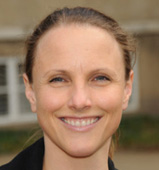
Mette Cathrine Ørngreen, Copenhagen University Hospital, Rigshospitalet, Denmark
Skeletal muscle lipid metabolism – diagnostics, pathophysiology and treatment optionsDr. Ørngreen is part of the metabolic team at Department of Pediatrics and Adolescent Medicine, Rigshospitalet, and has been part of Copenhagen Neuromuscular Center (CNMC) at Rigshospitalet for 18 years, and earned her doctoral degree in medical science in 2014 with the topic: “Substrate kinetics in patients with skeletal muscle disorders”. Dr. Ørngreen has been deeply involved in studies with metabolic myopathies and has been principal investigator in several studies in the field of stable isotope technique at CNMC. Her pathophysiological research has helped to unravel fat and carbohydrate metabolism in patients with muscle glycogenoses and fatty acid oxidation disorders
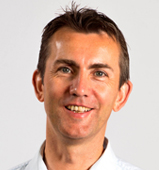
Dirk Lefeber, Radboud university medical center, Nijmegen, The Netherlands
Glycosylation related myopathiesDirk Lefeber is a professor at the Translational Metabolic Laboratory, department of Neurology, Radboudumc. His main research interest is to understand the mechanisms of abnormal protein glycosylation in human disease with a focus on neurodegenerative and neuromuscular disease. His research results are being translated into patient care via improved diagnostics and novel therapies.
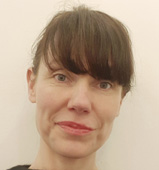
Tina Dysgaard Jeppesen, Copenhagen Neuromuscular Center, Denmark
Physical exercise training in patients with neuromuscular disordersTina Dysgaard Jeppesen is a neurologist specialized in neuromuscular disorders, and is working at Copenhagen Neuromuscular Clinic, Rigshospitalet, University of Copenhagen. Since 1999, she has conducted studies with a special focus on metabolic myopathies. Through the years, Tina Dysgaard Jeppesen has had a special focus on the potential of aerobic exercise as a tool to treat exercise intolerance in patients with muscle disease. Thus, she has been deeply involved in a number of exercise studies carried out in patients with muscle dystrophy and metabolic myopathies focusing on the harmful and beneficial effects of aerobic exercise in patients with muscle disorders.
Extra-muscular manifestations in neuromuscular diseases
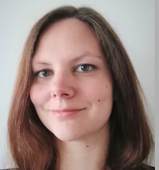
Nathalie Doorenweerd, Leiden University Medical Centre, The Netherlands
Combining genetics, neuropsychology and neuroimaging to better understand the brain involvement in Duchenne muscular dystrophyNathalie Doorenweerd studied Bio-Pharmaceutical Sciences at Leiden University (2005-2011) specialized in neuroscience and pharmacology. She obtained a PhD investigating cognitive impairment in boys with Duchenne muscular dystrophy taking structural, metabolic and functional aspects of the brain into account (June 2017). As post-doctoral researcher she continues her work on the brain involvement in Duchenne muscular dystrophy by performing longitudinal assessments with MRI, MRS and neuropsychological tests in both The Netherlands and in the United Kingdom.
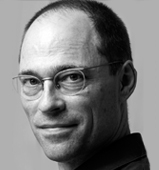
Markus Schülke-Gerstenfeld, NeuroCure and Department of Neuropediatrics, Germany
Arthrogryposis multiplex congenita; new genes and old acquaintancesMarkus Schuelke, MD is neuropediatrician and molecular biologist. From early in his career he was fascinated by detective work to elucidate rare diseases. His group was the first to describe several genetic defects for mitochondrial and neuromuscular disorders. Together with the bioinformatician Dominik Seelow he developed free software on the internet aimed to help researchers and physicians to interpret the flood of data emerging from NGS technologies. Best known are MutationTaster, HomozygosityMapper, and MutationDistiller. Markus Schuelke is spokesperson of a DFG-funded research unit called “Beyond the exome” and concentrates on the interpretation of regulatory mutation in patients with congenital myopathies.
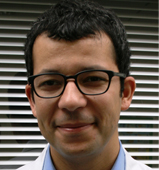
Karim Whabi, Paris Descartes University, Myology Institute, Paris
Improved survival of patients with neuromuscular conditions by cardiac preventive treatmentsKarim Wahbi is Associate Professor of Cardiology at the University of Paris Descartes, France and head of the reference centre for neuromuscular cardiomyopathies in Cochin Hospital, Paris. He received his medical degree from the University of Tours and completed his cardiology internship and residency at the University of Paris Descartes. He specialises in the clinical management of patients with cardiomyopathies with a specific expertise in neuromuscular diseases. Key areas of clinical and fundamental research for Dr Wahbi are prevention of heart failure and sudden death and the study of molecular mechanisms underlying cardiomyopathy in patients with neuromuscular conditions.
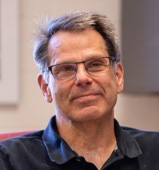
Bradley Olwin, University of Colorado Boulder, United States of America
PhD pharmacologyBad Olwin received his doctorate in pharmacology from the University of Washington and completed postdoctoral studies with Zach Hall at the University of California, San Francisco and with Stephen Hauschka at the University of Washington. He joined the faculty of the department of biochemistry at the University of Wisconsin, Madison in 1988 and then as faculty member at Purdue University where he was the Walther Cancer Professor of Biochemistry from 1993 to 1996. Brad Olwin then joined the faculty at the University of Colorado where he now serves as the Associate Chair of Molecular, Cellular and Developmental Biology. Olwin is known for discovering that heparan sulfate is required for binding and signaling by the fibroblast growth factor family, and for the mechanisms involved in controlling the growth and self-renewal of skeletal muscle stem cells. His laboratory focuses on intercellular signaling and intracellular signaling controlling skeletal muscle regeneration and the changes that occur to disrupt skeletal muscle function in neuromuscular diseases and during aging.
Advances in the treatment of neuromuscular disorders
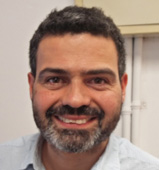
Jordi Díaz Manera, Hospital de la Santa Creu i Sant Pau de Barcelona, Spain
Muscle MRI as an outcome measureDr. Díaz-Manera is a neurologist specialized in neuromuscular disorders. He works at the Neuromuscular Disorders Unit in Hospital Sant Pau since 2005 where he is mainly focused in the diagnosis and follow-up of patients with inherited and genetic muscle disorders. He is especially interested in the use of muscle MRI for the diagnosis and follow-up of patients with muscle dystrophies. He has published several papers in international medical journals related to this topic. He is also interested in basic research. His thesis was focused on the development of new therapies for animal models of dysferlinopathy. He continues doing basic research, and at this moment he is interested in the development of new antifibrotic drugs for muscle diseases.
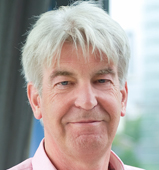
Johan den Dunnen, University of Leiden, The Netherlands
Gene variant databases: driving research, diagnosis, treatment and interactionJohan den Dunnen is professor of Medical Genomics, trained as biologist, specialized in molecular biology/molecular genetics, performing research in the area of genetic diseases. His research focuses on development/application of innovative genome technology in research/diagnosis of genetic disease. Working on Duchenne/Becker muscular dystrophy, his group developed several diagnostic tests (incl. PTT) and developed the antisense-oligonucleotide based “exon skipping” technology. Johan pioneered in gene variant databases, establishing the Leiden Muscular Dystrophy pages and the LOVD software. Active for several international organizations, he chairs the HGVS nomenclature committee and promotes data sharing. DNA diagnostics is based on sharing data on genes, variants and phenotypes: without sharing there is no DNA diagnostics.
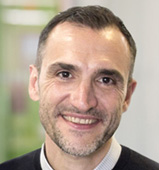
Federico Mingozzi, Genethon & INSERM U951, France
AAV vectors and the host immune system: a complicated relationshipDr. Federico Mingozzi has devolved most of his scientific career to the study of inherited diseases and the development of gene-based drugs. He conducted pioneering studies on gene transfer with adeno-associated virus (AAV) vectors and immunology. His work focused on the study of vector-host immune system interactions and immune tolerance induction allowed to gain a better understanding on the potential challenges in the translation of AAV gene therapies to humans. He has contributed to several first-in-human clinical studies of gene therapy, he also led studies aimed at the development of strategies to modulate immune responses in gene transfer.
Ethomic Digital Biomakers
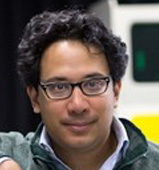
Aldo Faisal, Imperial College London, UK
Ethomic Digital BiomakersDr Aldo Faisal is the Director of the £20Mio. UKRI Centre for AI in Healthcare at Imperial College London and Associate Professor for Neurotechnology at Imperial College London. He obtained his PhD in Neuroscience from the University of Cambridge in 2006 and after being elected Junior Research Fellow at Cambridge (Dept. of Engineering) he moved on to establish his laboratory at Imperial College London in 2009. Scientific American voted his research restorative Neurotechnology as the 1st of 10 most transformative ideas of 2015 and the Toyota Mobility Foundation awarded him the $50,000 Discovery Research Prize. Aldo serves as an Associate editor for Nature Scientific Data and PLOS Computational Biology and served on the Global Futures Council of the World Economic Forum from 2015-2018.

